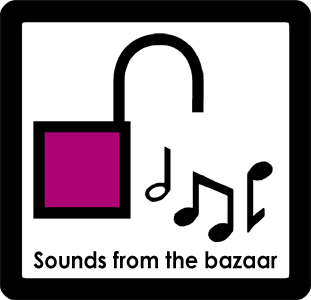The Guardian is one of the more sane newspapers when it comes to social panics. But even they could not resist headlining this article ‘Warning to parents over children ‘being raised online’.
The report has not yet been released. But it looks interesting and if the Guardian is to be believed is in line with reports from other countries. However, when it comes to the level of recommendations it simply gets it wrong.
“British children are spending more than 20 hours a week online, most of it at social networking sites such as MySpace, Facebook and Bebo, and are in effect being “raised online”, according to research from the Institute for Public Policy Research” says the Guardian.
“But the IPPR research, to be published next month, raises concerns about the content that young people can access and the lack of awareness among parents about what their children are doing on the internet.
“My mum will ask sometimes ‘Is it safe?’ but she doesn’t really know,” a 16-year-old girl told the IPPR. A 14-year-old boy added that even the sort of child-locks that are put on internet access at school can be circumvented by youngsters, who often know more about IT systems than their teachers. “We have restrictions at school but we can just get an administrator’s account and take them off.”
Children are also aware of the restrictions that the sites implement, with one 15-year-old girl telling researchers: “Everyone lies about their age ‘cos I think it’s like if you’re under 18, your profile gets set to private.”
The report shows that teenagers are digitally promiscuous, switching allegiance from sites as fashions change. One 16-year-old girl told the IPPR: “First it was like everyone was on MSN, then everyone sort of has Bebo, now everyone who had MSN moved on to Facebook, so it’s just what everyone’s doing at that time.”
The IPPR found that four out of five children aged five to 15 have access to the internet at home, with 40% of 8- to 11-year-olds and 71% of 12- to 15-year-olds saying they browse the web on their own. Contact with some form of online pornography was reported by 57%.
The IPPR wants the regulator Ofcom to take a more active role in the protection of children on the internet, by making recommendations to the government about where there is a need for action, such as tackling violent user-generated content. “The government should consider extending Ofcom’s remit to cover internet content.”
It also wants sites that are popular with young people, such as MySpace and Bebo, to develop what it terms cross-industry guidelines and become funding members of the Internet Watch Foundation.
The report suggests there is a lot of work to be done in educating parents about what their children are doing online. Ofcom already looks at the level of what it terms media literacy among consumers, but the IPPR wants the Department for Children, Schools and Families to have overall control of media literacy, with better information and support for parents.
The report, Behind the Screen: The Hidden Life of Youth, comes as Tanya Byron, the television psychologist and parenting expert appointed last year by Gordon Brown to look into the issues surrounding children and technology, prepares to release her final report. She is expected to recommend that computers be placed in communal areas rather than children’s bedrooms so parents can keep an eye on what is accessed.
A committee of MPs, meanwhile, has been investigating harmful content on the internet and in video games.
“The internet offers great benefits and opportunities for young people,” said the author of the IPPR report, Kay Withers. “But … parents need to be reassured about what they are looking at.
“Government needs to improve media literacy programmes for kids and to make sure parents are aware of how they can support young people’s positive online experiences.””
So where does this report get it wrong? The recommendation for cross industry guidelines is good – depending of course on the content of thoee guidelines. But he idea that access to computers should only be in communal areas is just unrealistic. Do we really want a return to the days of the 1950s when lack of central heating meant families huddles together in one room and young people had no personal space for chatting with their friends (because that is what they predominantly do on line). I remember those days, I was there.
The main tenet of the recommendations are controlling digital literacy and reassuring parents. These are not the answers. The key people are the users – in this case young people. And the answer to digital literacy and on-line safety are engaging users, not control or reassurance. That seems to have been forgotten. In a skype chat yesterday Cristina Costa said: “Basically I think kids need more attention, teachers more support and the entire community needs to engage with new technologies actively.” That sums it up for me.



